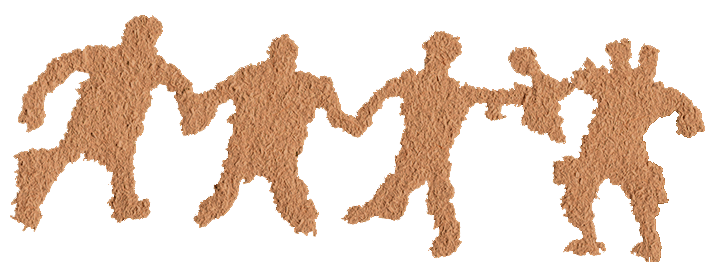| epahsi-skicin |
one who is half Indian (half Native) by descent |
| kci-skicin |
old Native person; elder, Native leader |
| skicin |
Native person, aboriginal person (especially, Peskotomuhkati or Wolastoqey person), Indian; person, human being |
| skicinuwahsewe |
s/he wears native clothing, dresses in native clothing |
| skicinuwakutom |
s/he has one or more Native ancestors, is of Native ancestry |
| skicinuwatuwewakon |
Peskotomuhkati-Wolastoqey language; (in general) indigenous language |
| skicinuwehtasu |
(marriage, etc.) it is done according to Native tradition or custom |
| skicinuwewestu |
s/he speaks in Peskotomuhkati or Wolastoqey, speaks in a Native language |
| skicinuwi (skicinuw-) |
Native, aboriginal, Indian, indigenous |
| skicinuwihkuk |
in or on Native land or aboriginal territory |
| skicinuwihq |
aboriginal community (Wol) |
| skicinuwihtaqot |
it sounds Peskotomuhkati or Wolastoqey, sounds Native or indigenous |
| skicinuwi-kisihtasu |
(basket, food, marriage, etc.) it is made according to Native tradition or custom |
| skicinuwi-latuwewakon |
Peskotomuhkati-Wolastoqey language; (in general) indigenous language |
| skicinuwinaqot |
it looks Peskotomuhkati or Wolastoqey, looks Native or indigenous |
| skicinuwinaqsu |
s/he looks like Native person |
| skicinuwi-nsotom, skicinuwi-'sotom |
s/he understands Peskotomuhkati-Wolastoqey; s/he understands an indigenous language |
| skicinuwitahasu |
s/he thinks like Native person |
| skicinuwiw |
s/he is Native, is aboriginal, is indigenous, is Indian |
| skicinuwoka, skicinuwoke |
s/he dances Native (Indian) dance |
| 'tawi-olonatuwe |
s/he knows how to speak the ordinary language of the community (especially, a Native language) |
| uskicinuwatuwewwikhomon |
s/he writes it in Wolastoqey or Peskotomuhkati (or in other Native language) |
| uskicinuwiwihtomon |
s/he says it Wolastoqey or Peskotomuhkati (or in other Native language) |
| uskicinuwokisuwewal |
s/he reads to h/ in Native language |
